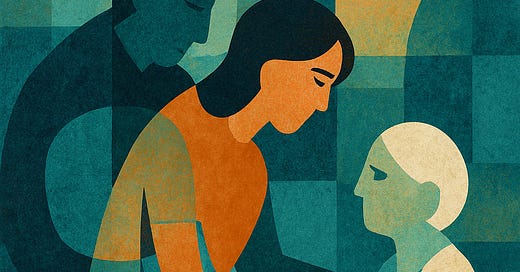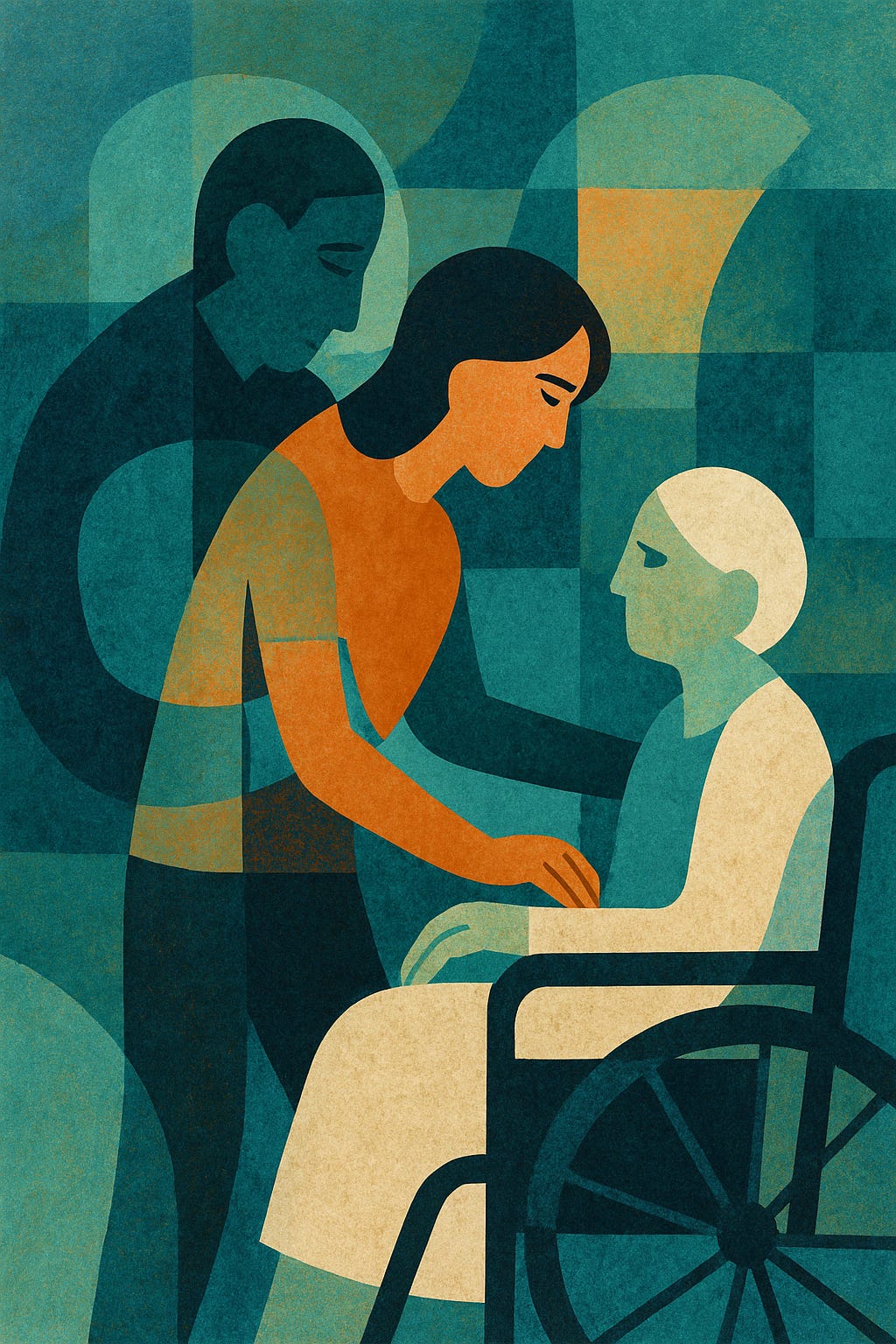When my late wife Olga was diagnosed with ALS, we had no idea what the next few years would hold. As the disease progressed and she became fully paralyzed, our lives transformed completely. I took a demotion of responsibilities at work to become her full-time caregiver, but I wasn’t alone. Terry—a devoted, gentle, and fiercely compassionate caregiver—came into our lives and stayed for nearly three years until Olga’s passing in 2021. She wasn’t just a helper; she was family. She fed Olga, bathed her, soothed her during long nights, and gave me strength when I was barely holding on.
It was grueling work—physically, emotionally, and spiritually draining. Terry, now retired, still carries the emotional weight of those years. Along the way, we had to find additional part-time caregivers to help us manage. That was never easy. There’s a shortage of these quiet heroes, and the demand far outweighs the supply. The ones who came into our home, even briefly, left a mark on our hearts. These people are the invisible scaffolding holding up families in crisis. And now, they’re at risk.
A recent NPR article explores the potentially devastating impact of proposed Medicaid cuts on long-term care and the families who rely on it. Medicaid is the largest payer of long-term services in the United States, funding over half of the $415 billion spent annually. But most people don’t realize that it’s not just about numbers—it’s about people like Terry, like Olga, like me.
When funding is cut, the consequences ripple outward. Services that allow people to remain at home—like home health aides, adult day care, and personal attendants—are reduced or eliminated. That means more caregivers are forced to leave jobs to take care of loved ones, often without training, resources, or respite. It means burnout. It means trauma. It means people like Terry are pushed to the brink while patients like Olga suffer the consequences of broken policy.
According to the article, about 4.5 million Americans rely on Medicaid-funded home and community-based services (HCBS). These services are more than convenient—they are lifelines. Without them, families must turn to institutional care, often far more expensive and misaligned with the patient’s wishes. Ironically, Medicaid cuts may end up increasing overall costs by forcing people into nursing homes instead of supporting them in their homes.
Family caregivers, who already provide unpaid care worth hundreds of billions annually, will be left to do even more. This affects not only their emotional and physical well-being, but their financial stability as well. Many leave careers behind or burn through savings. Some end up needing government assistance themselves.
And let’s not forget the caregivers—the Terrys of the world. Underpaid, undervalued, and in short supply, they are already carrying too much. Cuts to Medicaid would worsen this crisis, making these vital roles even harder to fill and support.
We need to stop treating care as a personal problem and recognize it as a societal obligation. Families shouldn’t have to go bankrupt or fall apart because a loved one gets sick. Caregivers shouldn’t be left isolated and unsupported. And people like Olga deserve to live—and die—with dignity, surrounded by the care they need.
If we allow Medicaid to be gutted, it won’t just hurt a budget line. It will hurt people. It will hurt families. It will hurt caregivers. It will hurt us all.
Because behind every number is a name.
Behind every statistic, a story.
Mine is Olga’s.
And I’ll never stop telling it.







